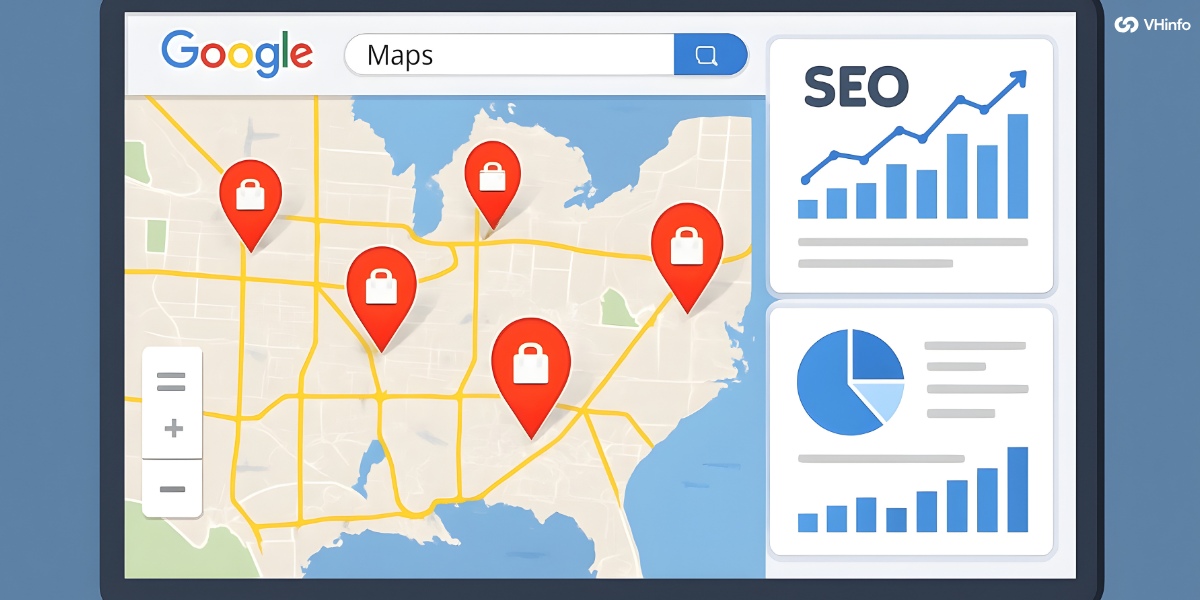The world of e-commerce is booming! In 2024, retail ecommerce sales globally reached $5.7 trillion according to Statista research and that number is only expected to rise. If you’re looking to jump into the game and start your online store, choosing the right e-commerce platform is crucial.
An e-commerce platform is essentially your online storefront’s backbone. It provides the tools you need to manage products, inventory, payments, shipping, and more. But with so many options available, selecting the perfect one can feel overwhelming.
This blog post will explore 9 best e-commerce platforms in 2024, highlighting their features, pros, and cons to help you make an informed decision.
Top 9 E-commerce Platforms 2024
#1. Shopify
 Shopify ecommerce website builder
Shopify ecommerce website builder
Shopify stands out as a leading e-commerce platform, particularly for beginners and businesses looking for a user-friendly and scalable solution. Let’s take a closer look at its strengths and weaknesses to help you decide if it’s the right fit for you. If you select Printful for your print-on-demand business, getting started is quite quick and easy. The self-explanatory system explains it all. All you need to do is simply sign up and connect your shopify e-commerce store to Printful.
Pros :
- Drag and Drop Store Builder with No code Experience
- Extensive app store
- Mobile-friendly themes
- In built Marketing Tools
- Protect your store and your customers’ data
- Mobile-Friendly
- Technical Expertise
Cons :
- Limited Customization
- Shopify charges transaction fees on each sale
- complex product configurations
Overall, Shopify is a powerful and user-friendly ecommerce platform that has made $1 trillion in global sales and that empowers businesses of all sizes to launch and grow their online stores. If you’re looking for a scalable solution with a robust app ecosystem and ease of use, Shopify is definitely worth considering.
#2. Wix
 Wix website editor
Wix website editor
Wix is a popular website creation platform known for its user-friendly drag-and-drop interface. But how does it stack up for building an online store? Let’s explore the pros and cons of Wix Ecommerce to see if it’s the right fit for your needs.
Pros :
- User-friendly Drag-and-drop editor
- beautiful design templates,
- built-in SEO tools.
- Strong Marketing Features
- Affordable Pricing
- Ideal for Beginners
Cons :
- Limited ecommerce functionality on lower-tier plans
- less scalable for large businesses.
Overall, Wix Ecommerce is a great option for entrepreneurs and small businesses looking for a user-friendly and affordable way to create a beautiful online store. However, if you have a large product catalog, complex business needs, or ambitious growth plans, you might need a more scalable platform.
#3. BigCommerce
 BigCommerce website editor
BigCommerce website editor
BigCommerce stands out as a powerful and scalable e-commerce platform catering to businesses of all sizes, particularly those with high sales volume or B2B needs. Let’s delve into its strengths and weaknesses to see if it’s the right fit for your online store.
Pros:
- Built-in scalability
- robust product management tools
- strong B2B features,
- powerful SEO tools.
Pros:
- Built to handle high sales volume and complex product catalogs
- Robust Product Management Tools
- Strong B2B Features
Cons:
- Steeper learning curve than Shopify,
- higher pricing plans compared to some options.
BigCommerce is a powerful e-commerce platform ideal for businesses seeking scalability, robust product management tools, and strong B2B functionalities. While it requires a bit more technical know-how and comes with higher pricing, the platform can empower your online store to handle high sales volume and complex business needs.
#4. Adobe Commerce (Magento)
 Adobe e-commerce platform
Adobe e-commerce platform
Pros:
- Highly customizable platform,
- Extensive functionality
- Large developer community
- Enterprise-grade security
Cons:
- Most expensive option
- requires technical expertise to manage.
Adobe Commerce is a top-tier e-commerce platform for established businesses with the resources and technical expertise to leverage its full potential. It offers unmatched scalability, customization, and a robust feature set to power large-scale online stores. However, the high cost and technical complexity make it less suitable for small businesses or those just starting out.
#5. WooCommerce
WooCommerce stands out as a popular open-source ecommerce plugin specifically designed for WordPress websites. It empowers you to transform your existing WordPress site into a fully functional online store, offering a cost-effective and customizable solution. Let’s explore the pros and cons of WooCommerce to see if it’s the right fit for your ecommerce needs.
Pros:
- Open-source platform (free to use),
- integrates seamlessly with WordPress,
- highly customizable with plugins,
- large developer community.
- Cost-effective,
- Highly customizable
Cons:
- Requires technical knowledge for setup and maintenance,
- additional costs for plugins and hosting.
WooCommerce is an excellent ecommerce solution for businesses on a budget or those already invested in the WordPress ecosystem. It offers a high degree of customization, a large developer community, and seamless integration with WordPress For those looking to dive deeper into the potential of WooCommerce development and the flexibility it offers for unique store setups, exploring available WooCommerce development options can provide valuable insights. However, it requires some technical knowledge for setup and maintenance, and there can be additional costs associated with themes, plugins, and hosting.
#6. Square Online
 Square Online ecommerce platform
Square Online ecommerce platform
Square Online is an attractive option for businesses already using Square’s point-of-sale (POS) system. It offers a user-friendly platform to establish an online presence and seamlessly integrate your online store with your in-person sales. Let’s delve into the pros and cons of Square Online to see if it fits your ecommerce needs.
Pros :
- Integrates seamlessly with Square POS system
- Easy-to-use interface
- Inventory management tools
- customer insights.
- simple setup
- good for managing inventory across channels.
Cons:
- Limited design customization options
- Fewer features compared to other platforms.
Square Online is a solid e-commerce platform for businesses already invested in the Square ecosystem. It offers a user-friendly solution for establishing an online store, streamlined inventory management, and valuable customer insights. However, if you prioritize extensive design customization, advanced features, or plan for large-scale online operations, you might need to consider a more comprehensive e-commerce platform.
#7. Volusion
 Volusion – ecommerce builder
Volusion – ecommerce builder
Volusion positions itself as an all-in-one e-commerce platform catering to businesses of various sizes, particularly those seeking a comprehensive solution with built-in features. Let’s explore the pros and cons of Volusion to see if it aligns with your online store’s needs.
Pros:
- All-in-one solution with built-in hosting
- SEO tools
- Marketing automation
- social media integration.
- Easy to set up and manage
- comprehensive set of features
- Good customer support.
Cons:
- Less scalable for large businesses
- pricing can be complex compared to other options.
Volusion is a user-friendly and feature-rich e-commerce platform that can be a good fit for businesses seeking an all-in-one solution with built-in hosting and marketing tools. However, its scalability limitations and potentially complex pricing structure might necessitate exploring other platforms for very large or rapidly growing businesses.
#8. OpenCart
OpenCart stands out as a free, open-source e-commerce platform. It empowers you to build a robust online store with extensive customization capabilities, ideal for users comfortable with a more technical setup. Let’s delve into the pros and cons of OpenCart to see if it aligns with your needs.
Pros :
- Open-source platform (free to use),
- highly customizable
- large selection of free and paid extensions
- multilingual capabilities.
Cons:
- Requires technical knowledge for setup and maintenance
- potential security vulnerabilities if not updated regularly.
OpenCart is a powerful and customizable e-commerce platform ideal for users comfortable with a DIY approach. The free, open-source nature makes it cost-effective, but the technical knowledge requirement and potential security concerns mean it’s not ideal for everyone. If you have the technical expertise or resources to manage the setup and maintenance, OpenCart offers extensive customization and control over your online store.
#9. Shift4Shop
 Shift4Shop – Ecommerce Platform
Shift4Shop – Ecommerce Platform
Shift4Shop (formerly known as 3dcart) is an e-commerce platform aiming to provide a user-friendly experience with built-in marketing tools for businesses of all sizes. Let’s explore the pros and cons of Shift4Shop to see if it aligns with your needs.
Pros :
- Free plan available
- Built-in marketing tools
- Mobile-friendly themes
- Strong SEO capabilities.
- Free plan for low-volume stores, user-friendly interface
Cons:
- Limited scalability on the free plan
- transaction fees on paid plans
- fewer app integrations compared to some competitors.
Shift4Shop can be a good option for beginners or businesses on a tight budget who want a user-friendly platform with built-in marketing tools. The free plan allows you to experiment, and paid plans offer features for growing businesses. However, the transaction fees, limited app integrations, and scalability constraints on the free plan might necessitate exploring other platforms for high-volume businesses or those with complex needs.
#10. eWorldTrade
eWorldTrade is the worlds largest online marketplace. The inventory is vast and includes many items, making it convenient and accessible meeting the demands of different scale businesses.
What makes eWorldTrade a global choice is that no matter where the client is from, the customer support representatives are available on the lines 24/7. All they aim is to provide a pain-free buying experience for buyers and a hassle-free listing process for suppliers. What makes it top the list? Universal Reach: Connect with suppliers and buyers from all over the world, opening up numerous opportunities for global trade.
Diversity of Products: Access a vast selection of products across various industries, making it easier to find exactly what you need.
Affordable Pricing: Enjoy the benefit of bulk buying at competitive prices, helping you to expand your business within the budget.
Conclusion
Based on vh-info suggestion choosing the right e-commerce platform requires careful consideration of your business needs, technical expertise, and budget. With so many excellent options available, there’s a perfect platform out there to help you launch and grow your online store. You can also leverage platforms like ReferralCandy to enhance your store’s growth. It allows you to reward customers for referring others, providing an easy and affordable way to increase sales through trusted recommendations.
This blog post provides a brief overview, but it’s recommended to delve deeper into each platform’s offerings to find the best fit for you. Remember, the ideal platform empowers you to focus on what matters most – selling your amazing products!



